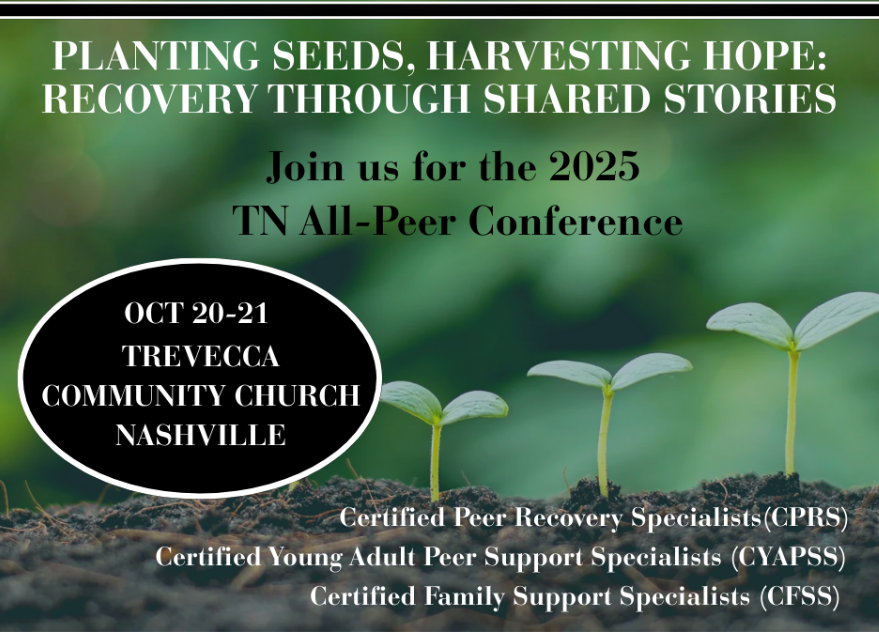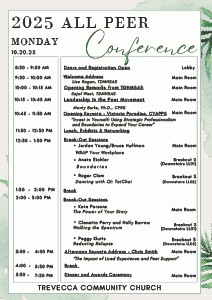2025 Tennessee All Peer Conference
Registration is now open for the 2025 Tennessee All Peer Conference!
We'll be gathering for two days of education, entertainment, and fellowship October 20 and 21 at Trevecca Community Church in Nashville. This gathering is intended for people with credentials from all three peer certifications:
- Certified Peer Recovery Specialist (CPRS)
- Certified Family Support Specialist (CFSS)
- Certified Young Adult Peer Support Specialist (CYAPSS)
Use this link to register via Eventbrite. In-person spots are all
filled, but there's still Good news: Virtual registration is still open, so you can join us online and be part of this amazing event. Register now to secure your spot!

Hotel Information:
Lodging is available at Embassy Suites by Hilton Nashville at 10 Century Boulevard, Nashville, TN 37214.
**October 10th 2025 is the reservation cut-off***
THERE ARE LIMITED ROOMS AND THEY ARE FIRST COME FIRST SERVE. Make sure to book as soon as possible. Visit the link below to book your room now! https://www.hilton.com/en/attend-my-event/bnanaes-tds-ca2da577-e18e-4ffc-88fc-1b9372a5869b/
